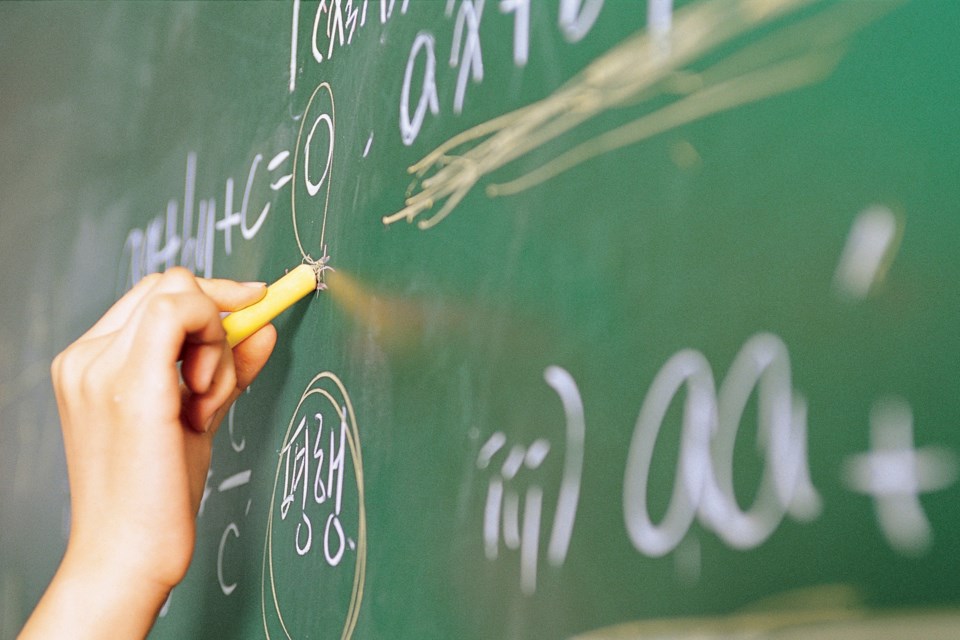INNISFAIL - Numeracy and literacy screening of kindergarten students in Chinook’s Edge School Division (CESD) and Red Deer Catholic Regional Schools (RDCRS) starting next month should provide useful information for educators, say officials.
“At the end of the day, anytime we can learn more about who are students are as learners in both numeracy and literacy, we are not opposed to that,”Jason Drent, associate superintendent with CESD, told the Albertan. “We want whatever tools are necessary to support our kids.
“We are going to work with our teachers and provide feedback to our partners when we do that.”
Asked what the assessments of kindergarten students might look like, he said, “There is a focus on some phonological awareness, so letter sounds is where they start.”
Alberta Education announced on Dec. 4 that screening already underway for Grade 1, 2 and 3 students started in September will be expanded to kindergarten students starting in January.
The current assessments involve both verbal and written testing of the students, with the Grade 1 assessments being mostly verbal.
The Innisfail-headquartered CESD includes schools across the district, while RDCRS includes schools in Innisfail and Olds.
Dr. Ryan Sawula, RDCRS associate superintendent of curriculum and inclusion, says the assessments will provide useful information in support of the students.
“The introduction of enhanced literacy and numeracy screening for young learners is a significant investment in the future success of Red Deer Catholic students,” Sawula said in a statement provided to the Albertan.
“Identifying and addressing challenges early on will allow us to provide the right supports at the right time, ensuring that no child falls through the cracks.
“The additional resources and funding provided by the province will strengthen our efforts to foster confidence and growth in every student, ensuring a strong foundation for lifelong learning.”
Education minister Demetrios Nicolaides said during a Dec. 4 press conference that the screening will indicate to teachers, educational staff and parents where a child’s numeracy and literacy skill are and if they may need follow-up help.
In response to a question from the Albertan during the press conference, Nicolaides said, “The screening will give educators and our school boards valuable information about their (kindergarten students) literacy and numeracy abilities and of course that information is incredibly valuable to help inform and spot students that may require additional intervention or support.
“We recognize, of course, that kindergarten not being mandatory means that many students might be coming in the school system for the very first time and may not have had any kind of prior learning or academic experience.”
Dr. George Georgiou, professor with the Faculty of Education at the University of Alberta, also took part in the press conference, telling the Albertan that the screening tools can “accurately identify about 95 per cent of the students who will later on develop reading difficulties. It is our responsibility to catch them early before they fall. The earlier we provide the intervention to these students the better chances we have to help them.”
The province will be providing school authorities $10 million for the 2024-25 school year in literacy and numeracy support funding, said Nicholaides.
Teachers will be able to access resources to help with the screening, including tutorial videos for specific screening, intervention lesson plans, and kindergarten counting intervention activities.
Jason Schilling, president of the 46,000-member Alberta Teachers' Association (ATA), said, "The association stands firmly against the province's plan to subject every kindergarten and elementary school students in grades 1-3 to unnecessary assessments. The government's plan will require teachers to administer time-consuming and, in many cases, unnecessary tests to every student. This takes away from the time available for teaching.”
The Smith government's suggestion that the ATA played a role in the "development of its screening process and approves of its implementation is wrong and dishonest," he said.
New screening requirements will be introduced for students in Grade 4 and Grade 5 starting in September 2026.



